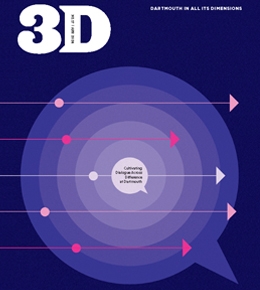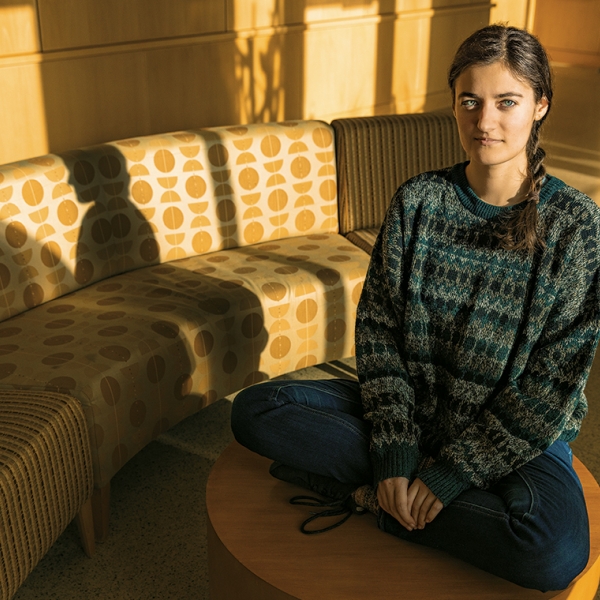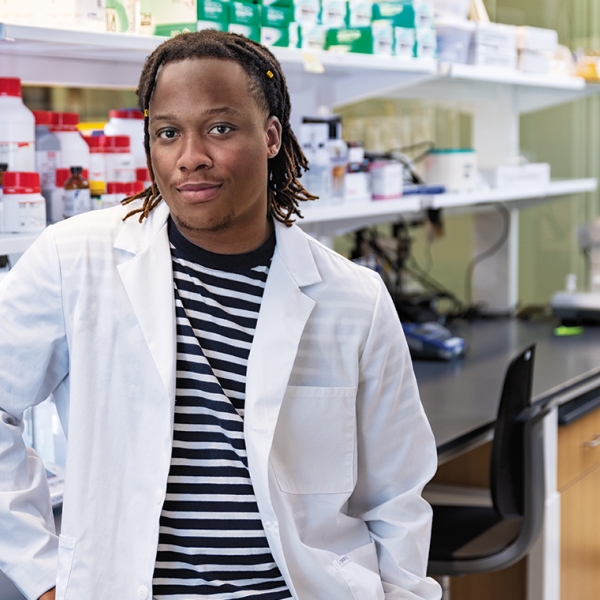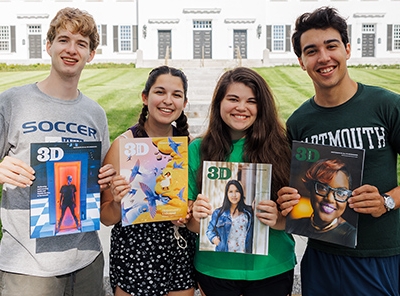Dartmouth Researchers Call for Energy Justice in the Global South

Before coming to Dartmouth, I had a very abstract understanding of research. Now, I want to be a researcher! I fell in love with this really meaningful way to produce knowledge—to take what I'm learning at Dartmouth, return home to Brazil, apply the concepts, and create my own networks of solidarity.
Nadine Lorini Fomiga '25
Nadine Lorini Formiga '25
she/her/hers
Hometown
Porto Alegre, Brazil
Major
Geography
Minors
Environmental Studies and Latin American, Latino, and Caribbean Studies
Dr. Sarah Kelly
she/her/hers
Position
Lecturer in Geography; Program Manager of the Energy Justice Clinic, Irving Institute for Energy and Society
Let’s start by defining energy justice. What does that mean? How does the Energy Justice Clinic support that ideal?
Dr. Kelly
Energy justice is a framework that aims to both diagnose injustices within energy systems and support more just energy alternatives—that is, energy transitions away from a fossil-fuel economy and towards a low-carbon, regenerative economy. At the Energy Justice Clinic, we give students across all disciplines the tools and training to ethically and meaningfully conduct research that serves community needs. Some of our projects are hands-on—like working to weatherize local homes—while others are more theoretical, like comparing how energy insecurity manifests in rural areas versus urban centers.
Nadine, how did you become involved with the Energy Justice Clinic?
Nadine
Last winter, I received funding from Dartmouth‘s Presidential Scholars program to study the importance of transnational solidarity networks among Indigenous groups around matters of energy justice. Indigenous communities all over the world suffer from similar injustices relating to land dispossession and development. When they’re connected on a larger scale, they can make their cases even stronger.
Now, I’ve received additional funding from the Stamps Scholars program to shift my research focus towards the study of alimergia, a grassroots approach to combining understandings of energy justice and food sovereignty, which is the right of communities to control their own food systems, in southern Brazil—particularly in my home state of Rio Grande do Sul. In a country like Brazil, justice needs to be intersectional. It must combine elements of land, energy, and the environment within larger frames of sovereignty because of the country’s legacies of imperialism, colonialism, and other exploitative resource dynamics.
How has the Energy Justice Clinic helped shape your career goals?
Nadine
Before coming to Dartmouth, I had a very abstract understanding of research. Now, I want to be a researcher! I fell in love with this really meaningful way to produce knowledge—to take what I’m learning at Dartmouth, return home to Brazil, apply the concepts, and create my own networks of solidarity. I plan to get a PhD one day to keep engaging with energy research and political ecology in the global South.
Dr. Kelly
Mentoring Nadine and juxtaposing our work in Brazil and Chile has been an incredible learning experience. Dartmouth has world-class faculty, staff, and students, and the College has always had undergraduate education at the center of its mission. The infrastructure that supports undergraduate student researchers is unparalleled.
Nadine
One of my biggest takeaways from the Energy Justice Clinic is that change only happens by listening to the communities on the ground. I’ve seen the gaps in the literature and learned how we can contribute to scholarship by uplifting community voices. That’s a beautiful lesson I’ll take with me in my life forever.
Photograph by Don Hamerman, standing on the docks of the Connecticut River

3D Magazine No. 17
April 2024


